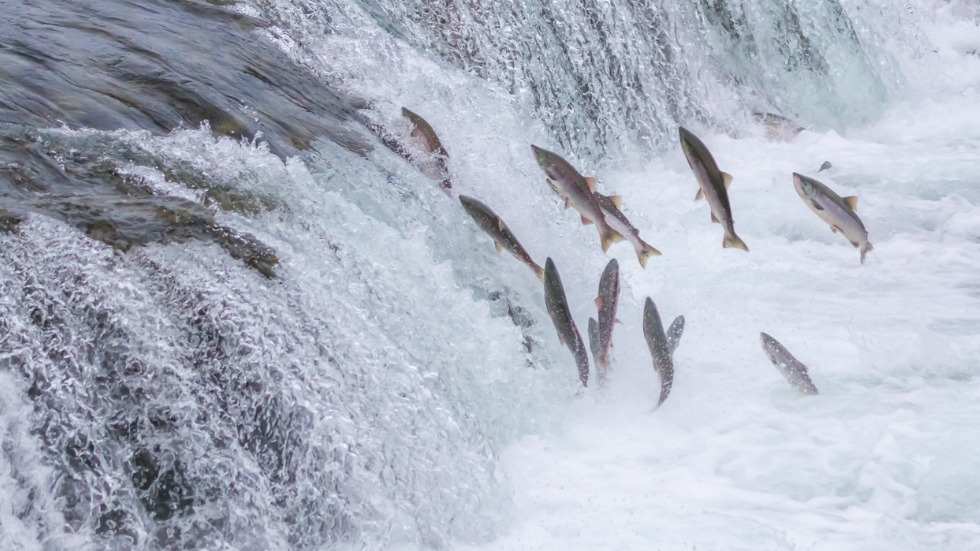I am pretty accustomed to reading headlines detailing the latest health issues plaguing our freshwater fish. It comes with the territory as an ecotoxicologist working on the health of North America’s relatively abundant, but certainly not infinite, freshwater supplies.
The recent announcement that Sen. Ron Wyden (D-Ore.), along with other state and federal lawmakers, is calling for an investigation into the toxic contamination of salmon across the Pacific Northwest, however, caught my eye. It fits into a broader question of salmon health that has had my community buzzing for the last couple of years.
Rather surprisingly, it all starts with automobiles.
It’s no secret that Americans love cars. In fact, in 2022, there were 290.8 million registered vehicles in the United States alone, 19 percent of the world’s total. That’s almost one car per person. And while we are always balancing the benefits and conveniences that automobiles afford us with the potential impacts on the environment, it seems as though there was one effect from a chemical we didn’t even know existed, of which we had not even been unaware. Until recently.
The science is pretty complicated but allow me to summarize.
Rubber tires used on cars contain chemicals used to make them stronger and help them withstand the road and the elements. It’s just like a preservative that lengthens the shelf life of a food product in the grocery store, but for tires.
As these protectants breaks down (due to the elements), one of them forms a newly discovered chemical called 6PPD-quinone which can then be washed away into freshwater lakes, rivers etc., with some deadly consequences for the wildlife that resides within.
This can include impacts on freshwater fish species on which many communities depend, such as rainbow and brook trout and, of course, coho salmon, whose recent mass die offs on the west coast had been puzzling researchers for a while.
This matters for many reasons. Coho salmon are popular among recreational fishers, but they are also an environmentally important species within aquatic ecosystems, so a change in their populations could have knock-on effects on the whole food web.
But the problem is we just don’t have the evidence to prove that either way. The research so far has looked at the impact of 6PPD-quinone on individual species, but not on a freshwater ecosystem as a whole.
When tire run off leaches into a river or a lake, and kills off coho salmon, what does that do to the populations within the lake on which the coho salmon prey? And then what does that mean to the populations in the lake overall? And the water chemistry? And so and so forth.
Our freshwater ecosystems are intricate and complex, and one change in population can have a multitude of domino effects that we may not even anticipate.
This is why we need more research, on this relatively understudied chemical, ideally in a real-life setting that can reveal the myriad of impacts that cascade through the system.
And while Oregon Wyden’s call for an investigation is very necessary and welcome, it is only once we have a complete picture of what tire run-off is doing to our fresh water, that we can make informed decisions on policy that will protect the health of one of our most importance resources for generations to come.
Jose Luis Rodriguez Gil is International Institute for Sustainable Development Research Scientist for Experimental Lakes Area
Author Profile
- "Center" Bias Rating
- The Hill is an American newspaper and digital media company based in Washington, D.C. that was founded in 1994. Focusing on politics, policy, business and international relations, The Hill's coverage includes the U.S. Congress, the presidency and executive branch, and election campaigns.
Latest entries
 HeadlinesOctober 22, 2023'Calculated misery': Here's why airlines want you to be uncomfortable
HeadlinesOctober 22, 2023'Calculated misery': Here's why airlines want you to be uncomfortable HeadlinesOctober 19, 2023Pressley, Booker Reintroduce MOMMIES Act to address maternal health disparities
HeadlinesOctober 19, 2023Pressley, Booker Reintroduce MOMMIES Act to address maternal health disparities HeadlinesJune 14, 2023Jill Biden warns against Trump: 'We know what’s in store if these MAGA Republicans win'
HeadlinesJune 14, 2023Jill Biden warns against Trump: 'We know what’s in store if these MAGA Republicans win' HeadlinesJune 13, 202311 dead in Russian missile attack on Zelensky's hometown
HeadlinesJune 13, 202311 dead in Russian missile attack on Zelensky's hometown

